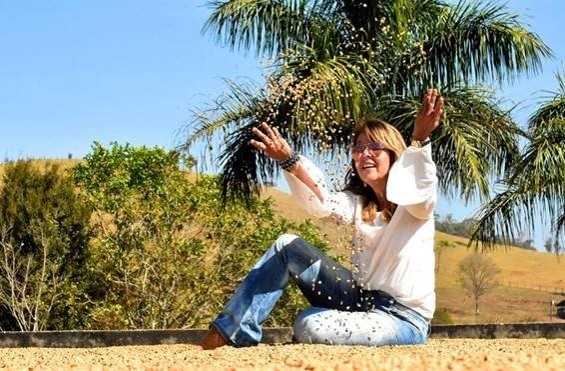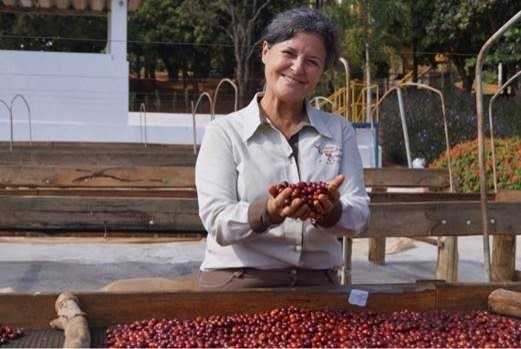MINAS GERAIS, Brazil – With 100 years of specialty coffee growing tradition in her family, Carmen Lúcia de Brito had the daunting task of leaving her world of psychology in picturesque Rio de Janeiro in Brazil to take over her father’s coffee business deep in the south of Minas Gerais. Carmen was getting back to her roots and set to become third-generation of coffee grower, however, even in 2006 when she took over a family business steeped in centennial tradition, there were few women running farms despite 18 million people working in agriculture in the country.
Women in the coffee industry
Today, this scenario has changed with women involved in every stage of the coffee process, from bean to cup, they are now leading more than 25% of all coffee farms in the country, representing explosive growth in female leadership for the sector since the start of this century.

“When I took over the farm, the number of women in the countryside was very small compared to today. In my case, I took responsibility for myself, because I wanted, as a woman, to show in fact that I was there because of competence, regardless of sex. I wanted to achieve the purpose I had outlined, it was my focus”, said de Brito, whose Caxambú & Aracaçu farm produces more than 10 varieties of beans for coffee specialty lovers in the US, UK and Japan and is part of the “Brazil. The Coffee Nation” a sector project held by the Brazil Specialty Coffee Association (BSCA) and the Brazilian Trade and Investment Promotion Agency (ApexBrasil).
De Brito is not alone, Marisa Contreras, previously owned a pharmacy but left her business to pursue her dream of becoming a coffee specialty grower. Her passion, she explains, is coffee and she dropped everything and deciding to take the risk. For the past 12 years, she has run Capoeira Farm and today exports specialty coffee to the US, UK, Poland and Japan.
“Being a producer is something that transcends the cultivation of a bean, every coffee bean brings its own story and we deliver that story to consumers, who can be transformed by our work. I am honored to know that people are drinking cups of our coffee in various parts of the world, and are having the opportunity to taste, smell and experience a specialty coffee, which goes far beyond a simple drink.” said Contreras.
De Brito and Contreras are spearheading a new culture of specialty growing in Brazil that is enchanting coffee lovers across the world. Today they can be counted among the 20% of women who lead agricultural businesses in Brazil – among the world’s biggest agricultural producers. For the Brazilian coffee sector, there are now nearly 89,000 women running or co-running coffee establishments, or 815,000 hectares of plantations across the country, according to the latest survey by the Brazilian Institute of Geography and Statistic (IBGE).
However, it hasn’t been easy. If anything, the journey for de Brito and Contreras has been transformative. For Carmen de Brito’s first harvest, specialty coffee above 80 points out of 100 on a sensory analysis scale made up just 2% of her beans. Today, it represents more than 85% of her total farm’s production.
In terms of sensory, aroma and mouthfeel, specialty coffee is much like wine and needs to score high marks before qualifying for a specialty label. This is important to consumers, especially to Europeans, Americans and Asians, who increasingly value such differentials in scoring and better understand that specialty coffee is indeed a complex beverage that brings added value and provides key sensory and production characteristics.
Her two farms Caxambú & Aracaçu are in south of Minas Gerais, between sinuous mountains forming the landscape of the city of Três Pontas. Different varieties of coffee are produced there, such as Yellow Bourbon, Yellow and Red Icatu, Ruby, Yellow and Red Catuaí, Catiguá MG1, MG2 and MG3, Acaiá, Mundo Novo and Topázio. The farms total 380 hectares. Her specialty coffee production is in line with agri-ecological standards, where soil recovery and maintenance have served as a reference for better agricultural practices.


















